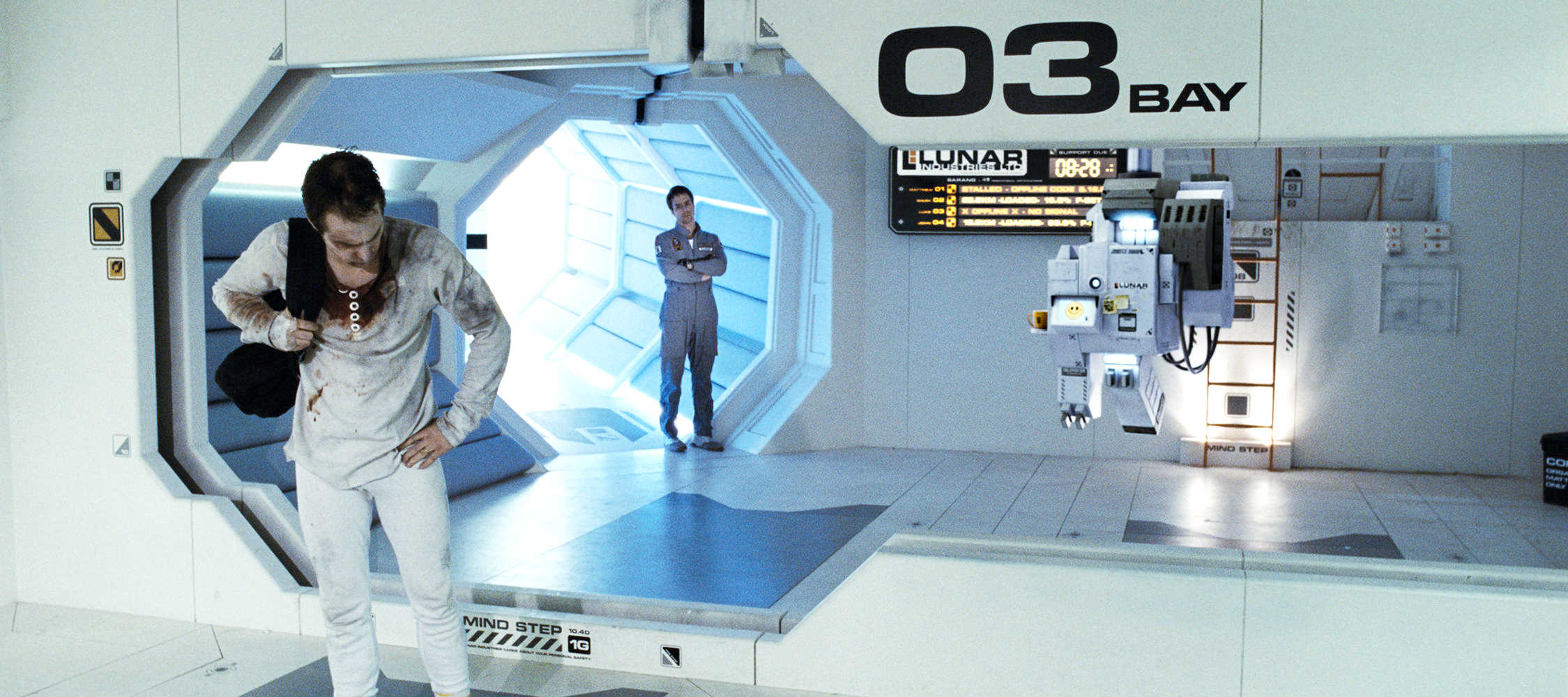
I have always been a champion of low-budget, smaller-scope, character-driven films, but sometimes those virtues are better in theory than in execution. At the end of the day, after all, a film is still meant to be entertainment. The problem with MOON, Duncan Jones' feature directorial debut, is that forgets to entertain.
Set on the moon (at least if you're interpreting the film literally -- you might read into it a different way and think that everything is all in the main character's head), astronaut Sam Bell (Sam Rockwell) is nearing the end of a three-year stint away from his wife and toddler daughter where he oversees a station run by Lunar Industries, a company that harvests clean energy for Earth by extracting helium-3 from the moon's surface. "Oversee" is the right word; though Bell will occasionally explore the landscape in a lunar all-terrain vehicle or repair something, he is more frequently seen as an isolated man whose skills are not needed, thanks to a fully-computerized and robotic system that does everything and leaves him only "Gerty," a Hal-like computer voiced by Kevin Spacey, to talk to. Bell spends more time watching 60s sitcoms and building a scale model city out of wood than he does doing anything that would look like his job.
It is Gerty's job to tend to Bell's every need, and as the story moves slowly along, the audience is made to wonder (as Bell is) whether or not Gerty's true task is to shield Bell from knowing something that he shouldn't. Live communication between the moon and Earth, for example, is "down." Communication is relegated to pre-taped video messages beamed in from home or, Bell assumes, shipped from his station back there. Then, just as it feels like the plot is about to flatline, Bell is injured in his vehicle outside of the station and wakes up in the infirmary to find that there is another of him. A clone. A younger and more fit version of himself.
Which Sam is real? Which is the clone? Are they both clones? These are questions Jones allows the audience to explore as the film wanders on. Indeed, the cerebral tactics employed by Jones mark the film's strongest attributes, notwithstanding a riveting performance by Sam Rockwell, who fantastically creates individual rhythms and nuances for two versions of the same character in a role that requires one actor to keep audiences engaged for an entire the film much the same as was required of Tom Hanks in "Cast Away." Rockwell, frankly, is the reason to watch the film.
The most noticeable film kinship to MOON is, of course, "2001: A Space Odyssey," a much-loved science fiction classic that no decent film snob is willing to admit is also quite boring. But I'm going to step out on this one and say that MOON IS BORING. Terribly so. One feels as if Jones forgot to aim lower than an audience member's head when making this film, as there is virtually no emotional engagement to speak of and, as previously mentioned, the film's only tense moments of plot are in deciphering and interpreting what is taking place, a solely brain-focused activity. The problem is, if you don't care about a character with your heart, you might not care what is going on with him, either.
I admire MOON for a number of things. I appreciate it's Ray Bradbury-esque plot and its organic use of CG effects. And I certainly admire Rockwell. But, if I'm not mistaken, the film is attempting to say something both about the isolation of the individual and the mighty corporation's whorish use of the individual. The first message is bread and butter to good science fiction, and the second message, if you ask me, is only attempted but not accomplished. I'd say "Wall-E," another recent sci-fi film, does a much better (if more in-your-face) job.
Movies should make us think. But they also have to do some entertaining. With little new to look at for 100 minutes but the same guy on the same set, and a flat-lined plot, MOON does one but not the other.
2.0 out of 4
No comments:
Post a Comment